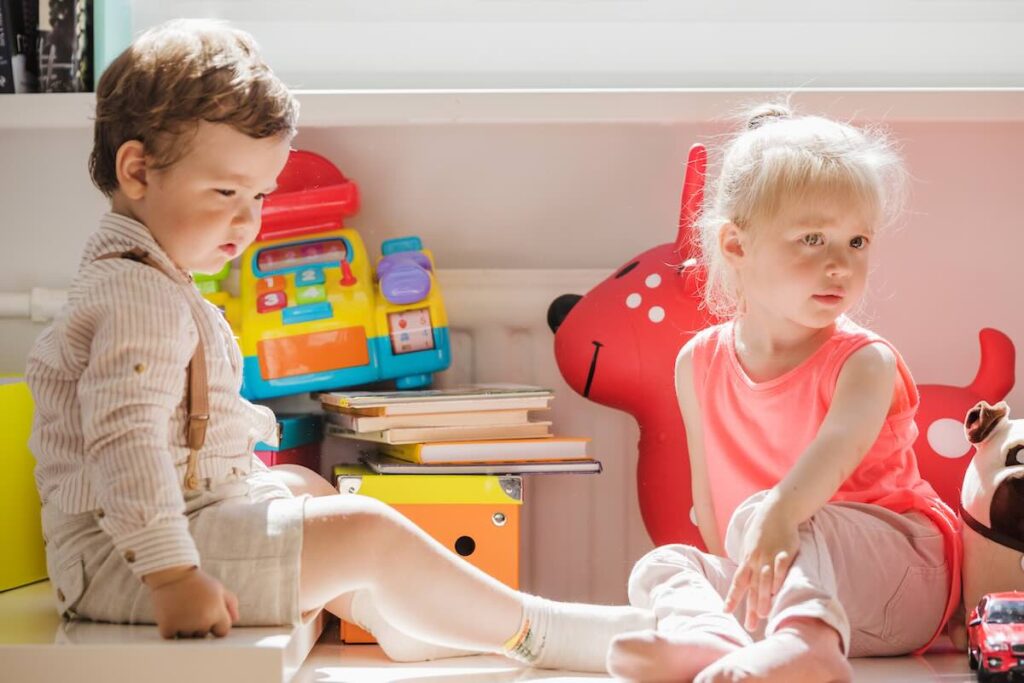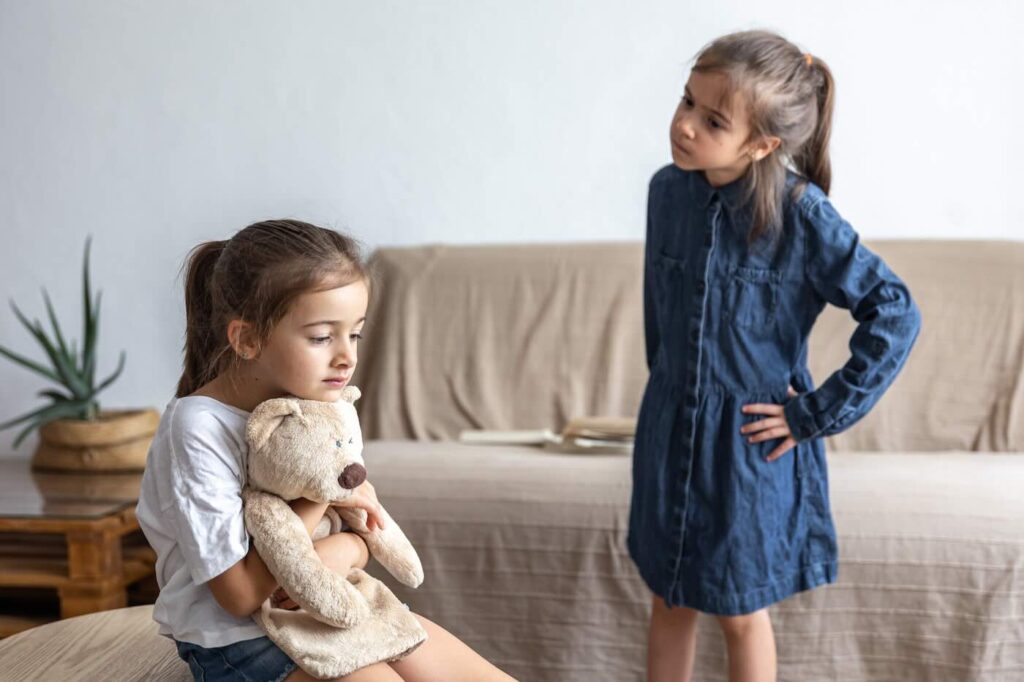Not every young child enjoys sharing their toys. Sometimes these situations escalate into tears — or even fights.
But this doesn’t mean your child is selfish or that you need to “fix” their behavior immediately. In fact, forcing a child to share is rarely helpful. After all, to a child, a toy isn’t just an object.
Why Children Don’t Want to Share
This behavior isn’t about greed — it’s about psychology. Young children are still learning to understand the world and themselves. They don’t yet have a clear sense of where “I” ends and “everything else” begins. To them, everything around — their home, parents, belongings, and toys — feels like an extension of themselves.
So, when a toddler is asked to give away a toy, it can feel almost like being asked to share their parents, or to give away a piece of themselves. And who would willingly do that? That’s why a child’s reluctance to share isn’t selfishness — it’s rooted in fear and confusion.
A sense of self and empathy typically begin to develop between ages four and six. That’s when parents can start gently teaching the concept of sharing — explaining what truly matters, and what can be shared safely.
Your role as a parent is to help your child recognize their own feelings and individuality, and to understand that others have those, too.
Should You Make a Child Share?
Absolutely not. Forcing a child to hand over their things can lead only to stress, fear, and mistrust.
Imagine someone told you to give away your car or your home — simply because another person wanted it, and you could “get it back later.” Naturally, you’d refuse. But then your parents step in and insist you must give it away. How would you feel?
That’s exactly how a child feels when told they “must” share their toys. Later, they may learn to share not out of kindness, but out of fear — associating generosity with pressure, shame, or loss.
Over time, this can create a deep resistance to genuine kindness or giving.

How to Teach a Child to Share
The best way to teach generosity is by example. If you never share your own things, your child won’t either — it’s as simple as that.
Talk openly with your child about the idea that “things are just things.” Explain that other children have feelings and desires just like they do. Show them that sometimes, giving away a toy they no longer use can bring real joy to another child.
You can also prepare your child in advance. For example, if you’re visiting another family with kids, explain that the other child might want to play with their toys. Clarify that “sharing” doesn’t mean giving something away forever — it’s just for a while. Teach them to negotiate: “You can play for five minutes, then it’s my turn.” Or encourage them to swap toys temporarily. You can even practice these scenarios at home with family members. This helps your child get used to the idea of sharing in a safe environment before they try it with others.
Just remember — don’t push too hard. A child should always feel their boundaries are respected. And, of course, praise and encourage your child every time they share willingly. Positive reinforcement builds true generosity — not fear.






